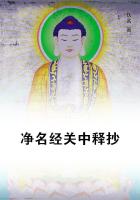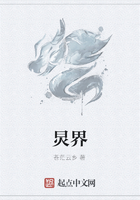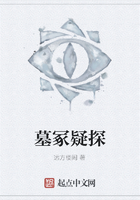I remember one committee, where the train was scheduled for ten minutes, succeed in having it delayed an hour, and instead of a brief address from the platform of the car, carried the presidential party to a stand in the central square where many thousands had gathered. In the first place, this city was not on Mr. Blaine's schedule, and as it was late in the afternoon, after a fatiguing day, he therefore told the committee peremptorily that ten minutes was his limit. Then he said to me: "Chauncey, you will have to fill out the hour."Mr. Blaine's wonderful magnetism, the impression he made upon every one, and his tactful flattery of local pride, did a great deal to remove the prejudices against him, which were being fomented by a propaganda of a "mugwump" committee in New York. This propaganda, as is usually the case, assailed his personal integrity.
Notwithstanding the predictions made at the time, he was nominated, and it was subsequently repeated that he would not carry New York.
From my own experience of many years with the people of the State and from the platform view-point, I felt confident that he would have a majority in the election.
It was a few days before the close of the canvass, when I was in the western part of the State, I received an urgent telegram from Mr. Blaine to join him on the train, which was to leave the Grand Central Station in New York early next morning for his tour of New England. Upon arrival I was met by a messenger, who took me at once to Mr. Blaine's car, which started a few minutes afterwards.
There was an unusual excitement in the crowd, which was speedily explained. The best account Mr. Blaine gave me himself in saying:
"I felt decidedly that everything was well in New York. It was against my judgment to return here. Our national committee, however, found that a large body of Protestant clergymen wanted to meet me and extend their support. They thought this would offset the charges made by the 'mugwump' committee. I did not believe that any such recognition was necessary. However, their demands for my return and to meet this body became so importunate that I yielded my own judgment.
"I was engaged in my room with the committee and other visitors when I was summoned to the lobby of the hotel to meet the clergymen.
I had prepared no speech, in fact, had not thought up a reply.
When their spokesman, Reverend Doctor Burchard, began to address me, my only hope was that he would continue long enough for me to prepare an appropriate response. I had a very definite idea of what he would say and so paid little attention to his speech.
In the evening the reporters began rushing in and wanted my opinion of Doctor Burchard's statement that the main issue of the campaign was 'Rum, Romanism, and Rebellion.' If I had heard him utter these words, I would have answered at once, and that would have been effective, but I am still in doubt as to what to say about it now. The situation is very difficult, and almost anything I say is likely to bitterly offend one side or the other. Now I want you to do all the introductions and be beside me to-day as far as possible. I have become doubtful about everybody and you are always sure-footed." I have treasured that compliment ever since.
As we rode through the streets of New Haven the Democrats had placed men upon the tops of the houses on either side, and they threw out in the air thousands of leaflets, charging Blaine with having assented to the issue which Doctor Burchard had put out--"Rum, Romanism, and Rebellion." They so filled the air that it seemed a shower, and littered the streets.
A distinguished Catholic prelate said to me: "We had to resent an insult like that, and I estimate that the remark has changed fifty thousand votes." I know personally of about five thousand which were changed in our State, but still Blaine lost New York and the presidency by a majority against him of only one thousand one hundred and forty-nine votes.
Whenever I visited Washington I always called upon Mr. Blaine.
The fascination of the statesman and his wonderful conversational power made every visit an event to be remembered. On one occasion he said to me: "Chauncey, I am in very low spirits to-day. I have read over the first volume of my 'Twenty Years in Congress,' which is just going to the printer, and destroyed it. I dictated the whole of it, but I find that accuracy and elegance can only be had at the end of a pen. I shall rewrite the memoirs in ink. In these days composition by the typewriter or through the stenographer is so common." There will be many who differ with Mr. Blaine.















